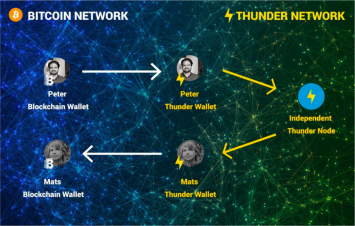 A legislative effort in the state of Vermont to recognize blockchain data in the court system is inching closer to completion, and only needs a governor’s signature to become enshrined in law.
A legislative effort in the state of Vermont to recognize blockchain data in the court system is inching closer to completion, and only needs a governor’s signature to become enshrined in law.
Buried inside an economic development bill recently passed by both the Vermont House and Senate is legislative language that, if approved, would make it so that “a fact or record” verified through blockchain technology is “authentic”.
Put more simply, a document notarized using a network like the bitcoin blockchain will have more legal bearing in court. This use case has emerged as one of the more notable applications of the technology, being used to certify physical objects like artworks, precious stones and even high-value footwear.
Source: Vermont is Close to Passing a Law That Would Make Blockchain Records Admissible in Court – CoinDesk

 Virtual-currency trading startup ANX International is opening up its know-how so that people can issue their own digital assets using blockchain, the underlying technology behind bitcoin, the digital money that has become a popular method of paying for goods and services and trading over the Internet.
Virtual-currency trading startup ANX International is opening up its know-how so that people can issue their own digital assets using blockchain, the underlying technology behind bitcoin, the digital money that has become a popular method of paying for goods and services and trading over the Internet.






